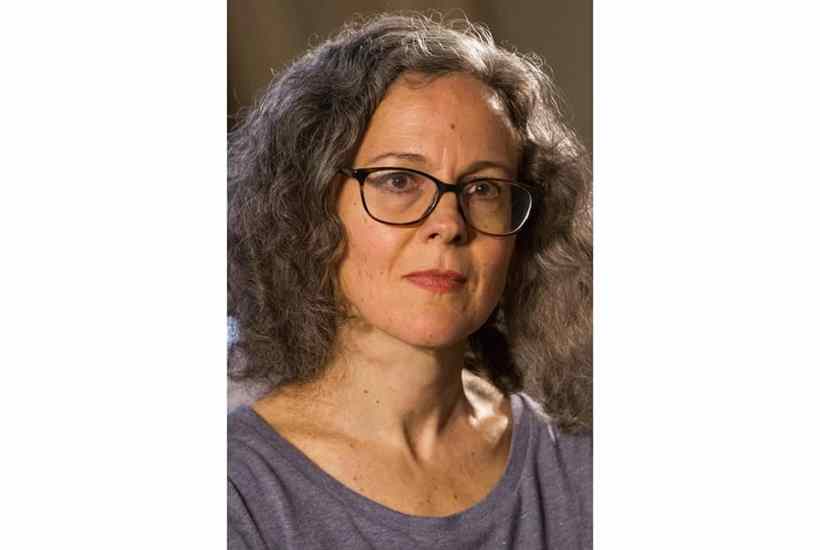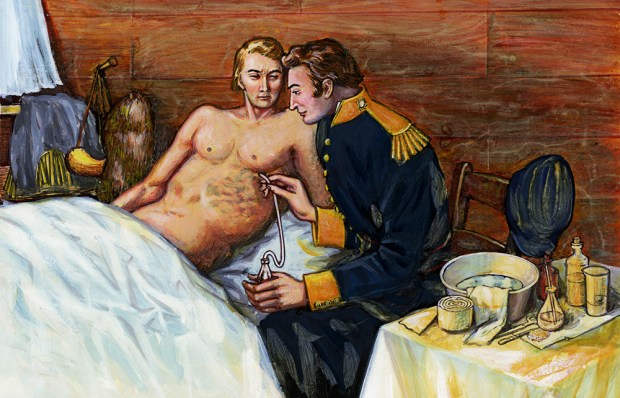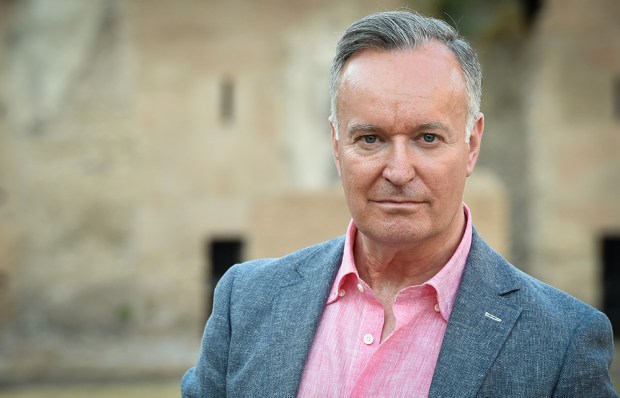The problem for feminism is men. Not, specifically, in the sense that men are the source of women’s problems, although the statistics do tend to point in that direction. Feminism’s men problem is that, despite all this, women like men. Love men. One of the lessons of second-wave experiments in separatism is that the idealised man-free existence is always fighting against the gravity of affection.
Sandra Newman’s novel The Men takes that quandary and does something clever with it. She imagines a world in which all the men and all the boys and all the trans women and all the male non-binaries and all the Y-chromosome-carrying foetuses are mysteriously spirited out of existence in one strange instant. How the left-behind women deal with this liberation, this bereavement, is what gives the story its queasy tension.
Jane, the primary narrator, is camping with her husband and young son at the moment of rapture. She’s indulging in a guilty-pleasure daydream of having never married or had a child, an alternate reality in which she could be a prima ballerina in Japan or sail solo round the world. ‘Still, I felt my husband and son there and loved that they were there. I was in love with them.’ And then they’re not there any more. Planes crash when their male pilots vanish from the controls. Fires rage in the absence of firemen. Women, shattered by grief, scream their lost ones’ names in the street, with no one to answer.
But after the cataclysm, a strange peace descends. The women are left in ‘a world of lambs with no wolves’. Girls can play outdoors unsupervised, the threat of the lurking nonce having been expunged. Women fill the parks, luxuriating in their freedom. Not that women aren’t capable of a certain amount of wolfishness. Newman puts marauding teen-girl gangs into her world, and there’s a scene where a trans man is viciously mobbed. Jane herself has a complicated backstory in which she’s both a victim of grooming and a sexual predator. This is no sentimental paean to feminine virtue.
But it is undoubtedly a better world in which to be a woman. One character, remembering all the harms men have committed, reflects: ‘Of course you couldn’t know that their disappearance was punishment, but who didn’t think it was punishment?’ Even so, some women miss their men. And when a broadcast called The Men begins, seeming to show the disappeared adrift in some cursed dimension, a few women become fixated on the idea of recovery.
The Men, like Newman’s previous novel The Heavens, teases us with the idea of utopia. What would we sacrifice to get there? Is it possible for human frailty to create a perfect world? It’s a morally hard-edged and grippingly weird fiction. There’s a gesture to the feminist sci-fi of Joanna Russ’s The Female Man but also to the abysmal imagination of that old lunatic H.P. Lovecraft. And Newman can write a beautiful sentence, the kind that unfolds itself into a small revelation.
The book has, of course, been pre-damned as transphobic for counting trans women as male (Newman futilely defended herself by saying she identifies as non-binary, whatever that means here). But then anything intelligent about gender will get damned by someone. This is a gripping, haunting novel that miraculously swerves both cheap misandry and the lazy pieties of contemporary rectitude to ask: what is to be done when politics smashes into the demands of love?
Got something to add? Join the discussion and comment below.
Get 10 issues for just $10
Subscribe to The Spectator Australia today for the next 10 magazine issues, plus full online access, for just $10.
You might disagree with half of it, but you’ll enjoy reading all of it. Try your first month for free, then just $2 a week for the remainder of your first year.














Comments
Don't miss out
Join the conversation with other Spectator Australia readers. Subscribe to leave a comment.
SUBSCRIBEAlready a subscriber? Log in